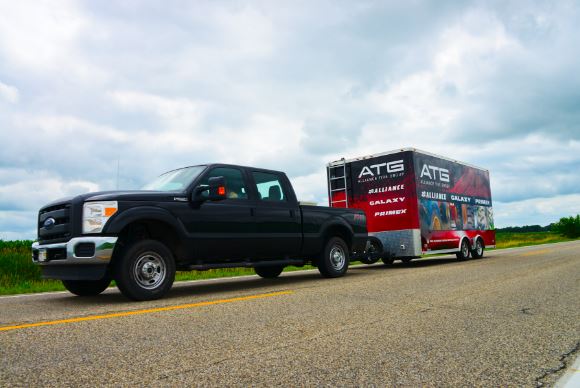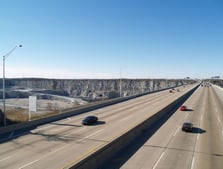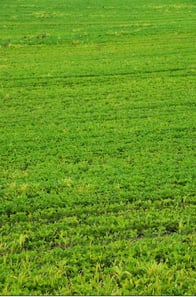A Drive Through Agriculture’s Past and Present
The route from Chicago to Chambersburg, Pennsylvania—home of the North American Manure Expo last week—was a drive through agriculture’s past and present.

 Near the Indiana border, we were awed as the interstate crossed the massive Thornton quarry—at a mile and a half long, half a mile wide and 450 feet deep, a monument to the colossal building projects that underlie the infrastructure at the crossroads of the Midwest. Soon, it will serve as a reservoir for water diverted during Chicago’s Big Tunnel project (another huge construction job we hope will put plenty of rugged Galaxy construction, skid steer and mining tires to work).
Near the Indiana border, we were awed as the interstate crossed the massive Thornton quarry—at a mile and a half long, half a mile wide and 450 feet deep, a monument to the colossal building projects that underlie the infrastructure at the crossroads of the Midwest. Soon, it will serve as a reservoir for water diverted during Chicago’s Big Tunnel project (another huge construction job we hope will put plenty of rugged Galaxy construction, skid steer and mining tires to work).
We wanted to stay close to the fields, so we followed historic Route 6 through Indiana, then picked up the Lincoln Highway—America’s first coast-to-coast road, dedicated back in 1913—in Fort Wayne. From the Indiana Dunes to the boggy black ground along Highway 6, we were constantly reminded of the diverse soils delivered by the glaciers that scoured the Midwest and left behind some of the world’s best farmland.
 After the wet spring we’ve had this year, those heavier patches highlighted the dangers of soil compaction, which can devastate yields for years. Check out the photo of an Indiana soybean field, where plants are already suffering beside the ruts left by a sprayer—long compaction zones that will probably show up for many crops to come.
After the wet spring we’ve had this year, those heavier patches highlighted the dangers of soil compaction, which can devastate yields for years. Check out the photo of an Indiana soybean field, where plants are already suffering beside the ruts left by a sprayer—long compaction zones that will probably show up for many crops to come.
Sometimes there’s no choice but to run on soils that are wet or compaction prone. That’s when running flotation tires with large, even footprints and operating at the lowest possible inflation pressure can really make a difference.
Our flotation tires and IF/VF tires are designed to minimize soil compaction while maximizing performance—and this is why. When we got to Chambersburg, we demonstrated the difference in soil compaction between radial flotation tires and standard R-3 bias-ply tires at Manure Expo. Here’s a link to a time-lapse video of the creation of the soil pit. More on that soon.


